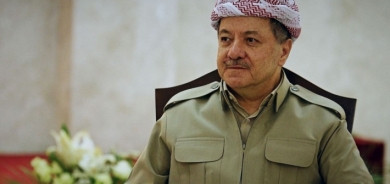A New Phase in Turkey's Kurdish Problem

Despite the harsh rhetoric of the Prime Minister, Mr. Recep Tayyip Erdoğan, both the Minister of Justice and Deputy Prime Minister respectively Mr. Bozdağ and Mr. Arınç adopted a more conciliatory style. They knew that irrespective of the “case” or the organization behind the strikes, it was the responsibility of any government to protect the lives of the inmates under its custody. Furthermore consecutive deaths would drive a lasting wedge between the Turks and Kurds of the country. It is quite fortunate that Turkey has turned away from the brink of a traumatic political experience. It could have inflicted serious damages both her image and render the solution of the “Kurdish problem” harder than ever.
The main reason why the Kurdish problem could not be ended is a matter of perception of the sides to the conflict. In every conflict there are differing definitions of the mutual problem and the way it has evolved. For the Kurds, the Republic of Turkey was consummated (at the Lausanne Treaty-1923) as the state of both Turks and Kurds. But in the following years Turks excluded the Kurds, a process that ended in total rejection of their existence in Turkey. The ongoing rebellion is a rightful response to this injustice.
For the Turks, Kurds took up arms against the state in 1978 and engaged in a spree of terrorism that started in 1984 that continued to this day in an ever increasing degree. The armed Kurdish organization is a stooge of foreign powers and aims to partition Turkey.
Perceptions on both the starting point and nature of the “problem”, as its evolution are irreconcilably different. With such diverse understandings a common narrative could not be construed. Failure to do so prevented any attempt for a possible solution.
This irreconcilability prohibits the appreciation of the democratic reforms realized by the government in line with the spirit of the time and the pressure of the Kurdish resistance to a repressive and exclusive system. That is why improvements have been late and incomprehensive.
On the Kurdish side there are three main actors. The PKK armed organization that is symbolized with its headquarters on the Qandil Mountain in north Iraq. Peace and Democracy Party (BDP) representing the PKK sympathizers in the Parliament and Abdullah Öcalan, founder and leader of the PKK serving his life-time penalty on the prison island of İmralı.
The government has isolated Öcalan in the past year and half holding him responsible for the violence of the PKK. However the PKK carried on its bloody career in his absence. BDP has always been accused of being the mouth piece of Qandil and kept out of the peace process. The only remaining actor, the armed PKK, was taken seriously by the government but as an enemy to engage. What is ironic is that government’s military response has been used by the PKK to legitimize its own violence. Unfortunately in the past a group of bureaucrats and military personnel that led the security apparatus relied on the continuation of violence (namely the PKK) to further their aims of staying intact and in power.
Seeing the counterproductive nature of this self- perpetuating process the government seems to have taken a lesson in the recent hunger strikes. First the emergence of fourth party in the Kurdish front, namely thousands of inmates or political prisoners that were getting ready to join the hunger strike could be formidable rival to deal with. Hundreds dying in a row and thousands waiting in line would really put the government in a very difficult situation. It was Öcalan that has saved the government falling into this pitfall by calling on the inmates to stop. His intervention has demonstrated the fact that he is still the political leader of the Kurds affiliated with the PKK. Revelation of this fact brought him back to the negotiation process that is not altogether scuttled by the government.
Now that he is in the negotiation process once again, the government is anticipating two things: Öcalan’s constructive role as negotiator on behalf of an organized Kurdish population that is both politically and militarily tested for its cohesion and endurance. Secondly he is expected to expose the fault lines in the organization he has created and led for several decades. Öcalan and some of his older colleagues (nearly 60 years of age) represent the old school of Leftist politics in Turkey. Their reference is Turkey and wishes a solution within Turkey. But the young cadres and those who are between 30 and 40 years of age are conditioned to wage a battle against the “enemy”, meaning that is everything associated with Turks and Turkey. If the chance of making peace with the old guard represented by Öcalan is missed, it will be much harder with the following generation to do so.
That is the lesson we have all learned from the hunger strikes and its effects.
Prof. Dr. Doğu Ergil is a Professor of political Science in Fatih University \ Turkey, and also an expert on the Kurdish Question, and he is one of the well-known authors in Turkey.

 Doğu Ergil
Doğu Ergil










